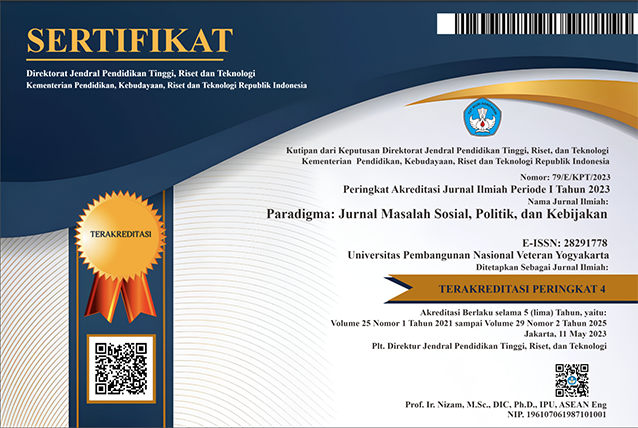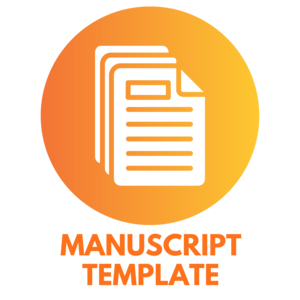KONSTRUKSI BERITA PANAMA PAPERS DI TEMPO.CO
DOI:
https://doi.org/10.31315/paradigma.v21i2.2762Keywords:
Panama Papers, Tempo.co, Framing.Abstract
Lackage of financial data case in Panama or populary called Panama Papers is being a serious issue in the world, as well as in indonesia, because it impicates many important people of indonesia. All of mass media that report about this issue with a their own perspectives and constructed it into a news frame. This research reveals how Panama Papers are framed into the Tempo.co news. Data Collection technique and data analysis used in this research is framing analysis model developed by Zhongdang Pan and Gerald M. Kosicki which is divided into four structures, that is syntax (how journalists make facts), scripts (how journalists tell the facts), thematic (the way journalists write facts) and rhetorical (the way journalists emphasize facts). Objects studied in this study are news from the news portal Tempo.co from April to October 2016 edition which write about Panama Papers. The results of the study obtained three important conclusions, First, Tempo.co has a view to the public and the public interest, seen from the tendency of news that criticizes the government. Second, the construction has built by the Tempo.co indentified by the position of source of the news. The source of the news who representing media frames are placed more dominant in the opening of paragraphs and vice versa. Third, as an independent media and free from all pressure, Tempo.co consistently constructs Panama Papers with a point of view criticizing the government’s performance for the better. It is in line with the mission of Tempo.co as a free and responsible pressDownloads
How to Cite
Issue
Section
License
The manuscript submitted to Paradigma: Jurnal Masalah Sosial, Politik, dan Kebijakan journals are released under the license of Creative Commons Attribution-Non Commercial- ShareAlike (CC BY SA) if and when the article is accepted for publication.
We declare that:
- This paper has not been published in the same form elsewhere.
- It will not be submitted anywhere else for publication prior to acceptance/rejection by this Journal.
- A copyright permission is obtained for materials published elsewhere and which require this permission for reproduction.
Retained Rights/Terms and Conditions
Authors retain all proprietary rights to the published works, such as (but not limited to) the following rights:
- Copyright and other proprietary rights relating to the article, such as patent rights,
- The right to use the substance of the article in own future works, including lectures and books,
- The right to reproduce the article for own purposes,
- The right to self-archive the article
The right to enter into separate, additional contractual arrangements for the non-exclusive distribution of the article's published version (e.g., post it to an institutional repository or publish it in a book), with an acknowledgment of its initial publication in this journal Paradigma: Jurnal Masalah Sosial, Politik, dan Kebijakan



